Dealing with hair problems like hair fall and hair loss can be distressing, and the journey to a voluminous mane can be overwhelming. Nevertheless, with the right tips and effective solutions, you can achieve luscious and strong hair effortlessly!
Hair loss is a common concern that can affect all genders. In this section, we discuss some of the best hair loss treatments available, ranging from scientifically proven methods to innovative natural solutions. Our comprehensive resources provide a wide range of information, right from “How much hair loss is normal?” to what causes hair loss and how to stop hair fall. We also delve into topics such as nutrient deficiencies and their role in hair loss, including which vitamin deficiency causes hair loss. Additionally, we discuss whether creatine or even factors like COVID-19 contribute to hair loss.
This section uncovers specialized insights into unique factors that contribute to hair loss in women and the best methods for hair fall control. Join us as we explore the connections between postpartum hair loss, hormonal changes, the relationship between an itchy scalp and hair loss, and how to stop hair fall immediately with evidence-based tailored treatments.
Since hair fall is a common concern worldwide, there are several commercial and home remedies available to address it. Navigating this array of treatments can be challenging. However, we have made this path easier with our curated articles. From PRP for hair loss to finasteride and natural remedies, we will help you make informed decisions about the best hair loss treatment for everyone.
Taking proactive steps, from following a balanced diet to a proper hair care regimen, can contribute to maintaining your hair’s health. Empower yourself with the knowledge you need to regain your confidence and embrace healthy tresses!
Hair loss can result from various factors, including genetics, hormonal changes, and stress. Additionally, poor diet, medical conditions, and certain medications can also contribute to hair loss (1).
Biotin, a B vitamin, is often considered beneficial for hair health. It supports keratin production and may help improve hair strength and growth (2).
Yes, medications for conditions like cancer, thyroid disorders, and high blood pressure are known to potentially cause hair loss. They disrupt the normal hair growth cycle, causing the hair to enter the resting phase prematurely and leading to shedding (3).
Normal hair shedding is a part of the hair growth cycle, with 50-100 hairs shed daily. Hair loss is when shedding exceeds this range consistently, resulting in thinning or bald patches.
Hormones may affect the hair growth cycle. Hormonal changes, such as during pregnancy or menopause, can lead to hair follicles entering the resting phase prematurely and causing temporary hair shedding (4).
Hereditary hair loss often follows a specific pattern, like receding hairline or thinning on the crown (5). If your close family members also experienced similar hair loss patterns, it is likely to be hereditary.
Articles on StyleCraze are backed by verified information from peer-reviewed and academic research papers, reputed organizations, research institutions, and medical associations to ensure accuracy and relevance. Read our editorial policy to learn more.

Tackle your summertime sadness with the best ways to flaunt vibrant, voluminous hair.
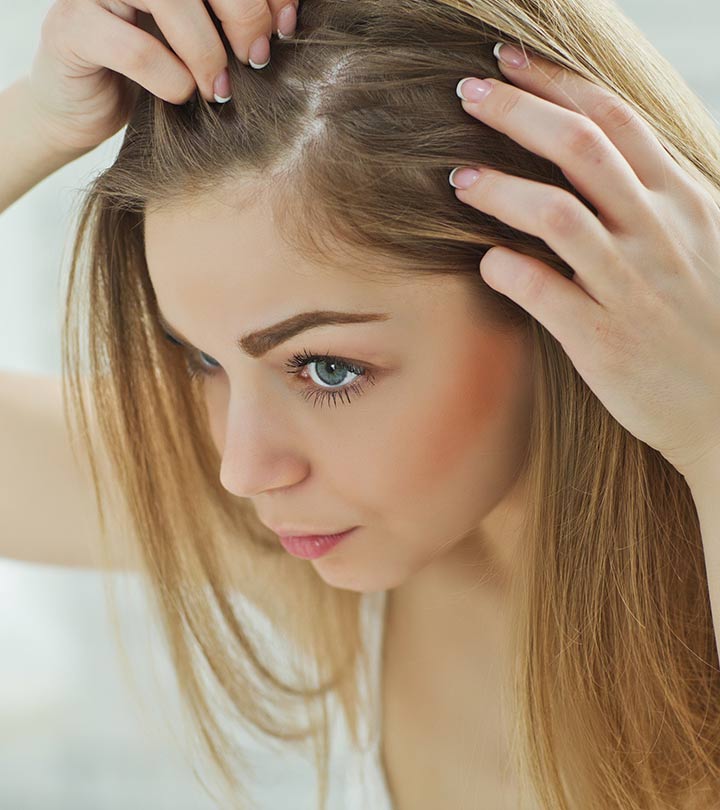
We can’t deny the fact that hair loss or damaged hair is a huge depressant for many. No doubt, it
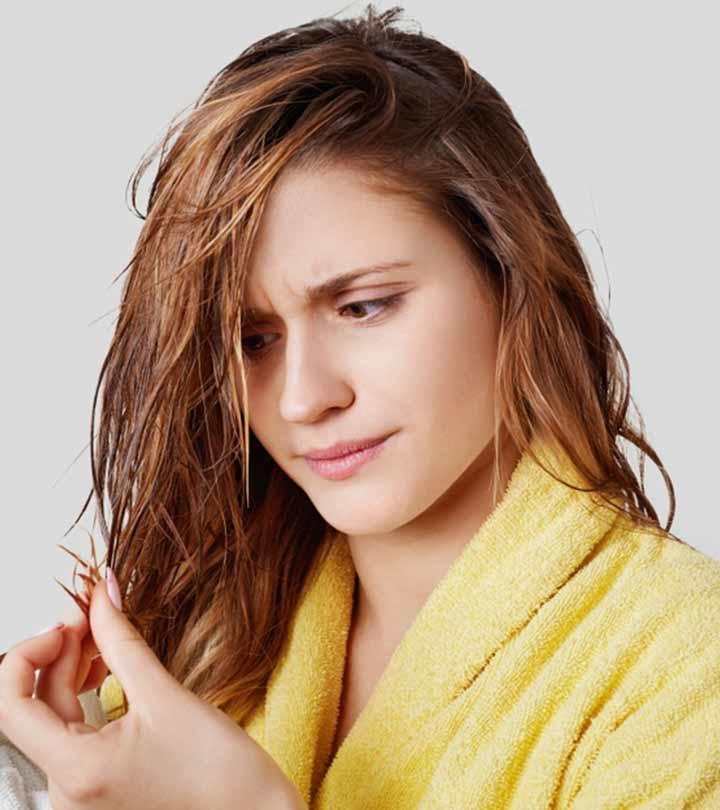
Take preventative measures to ensure the minerals in water do not harm your mane.
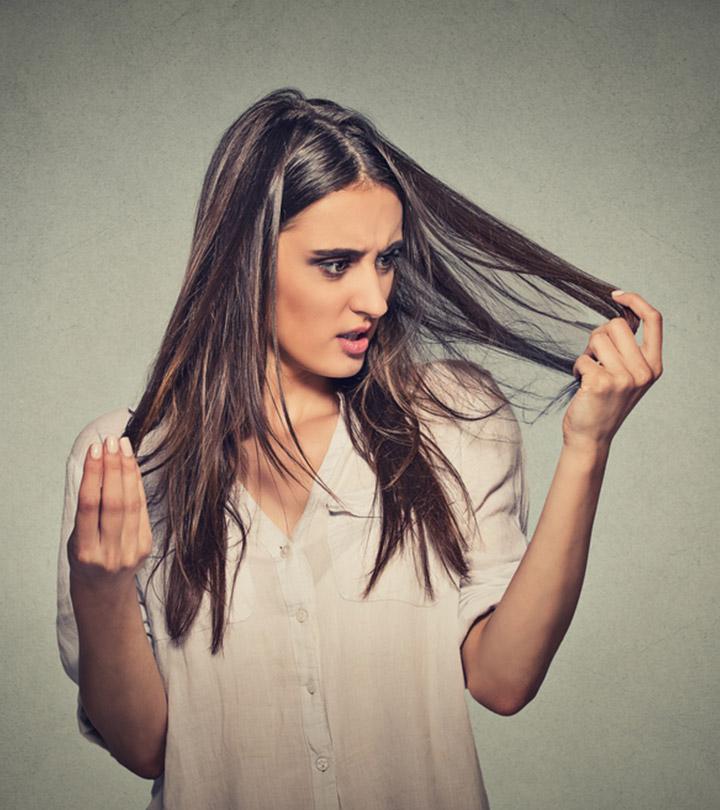
Say 'goodbye' to thinning hair with simple ingredients from your kitchen.
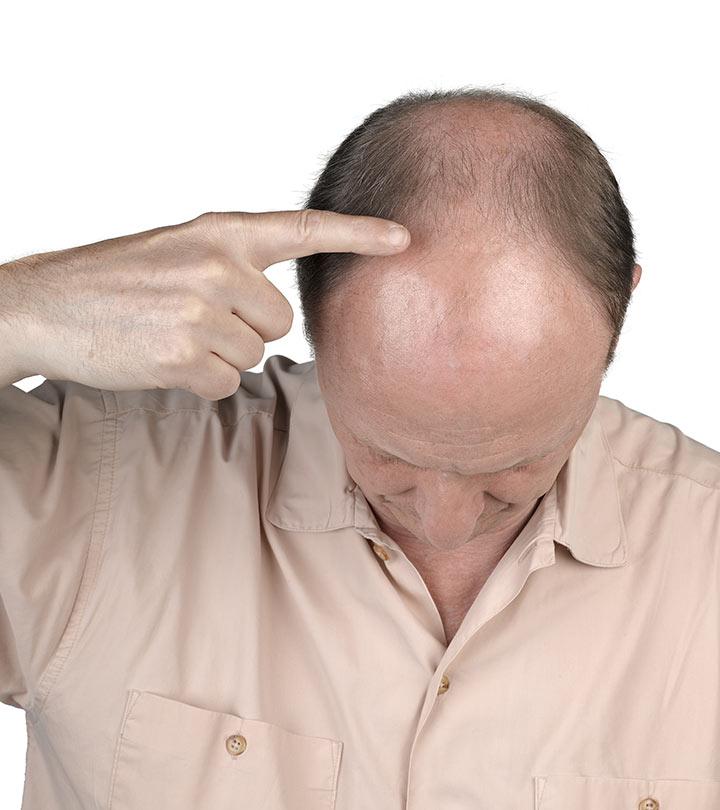
Restore your healthy lifestyle and work on stress reduction to regain your hair.
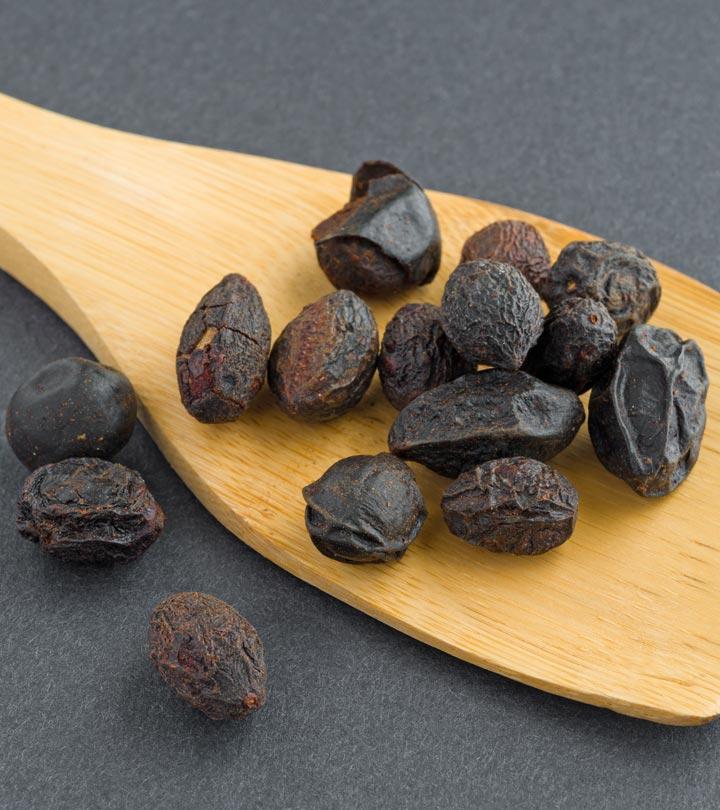
Learn the truth before jumping on this natural remedy to boost hair growth.
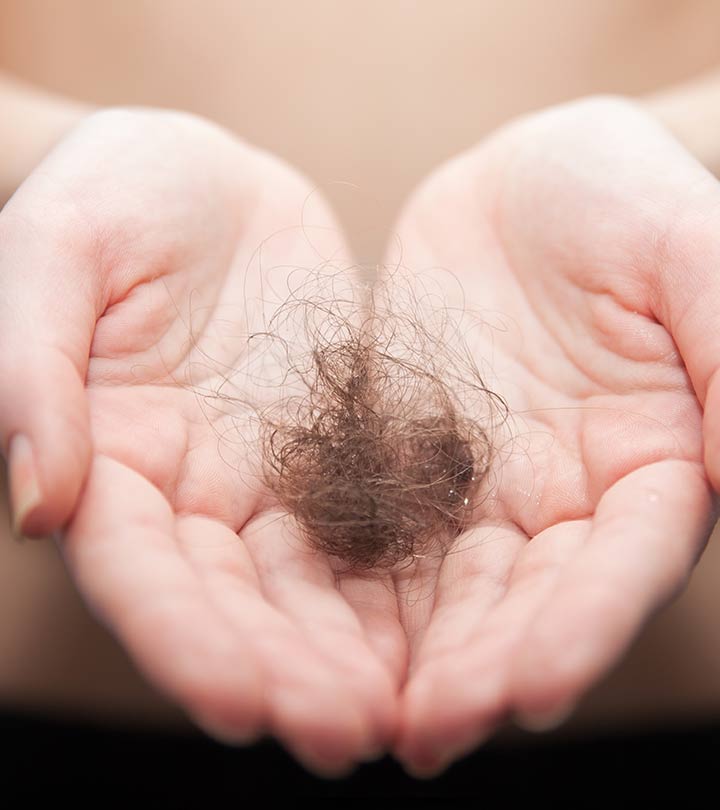
Personal hair hygiene is absolutely essential for managing this hair loss.
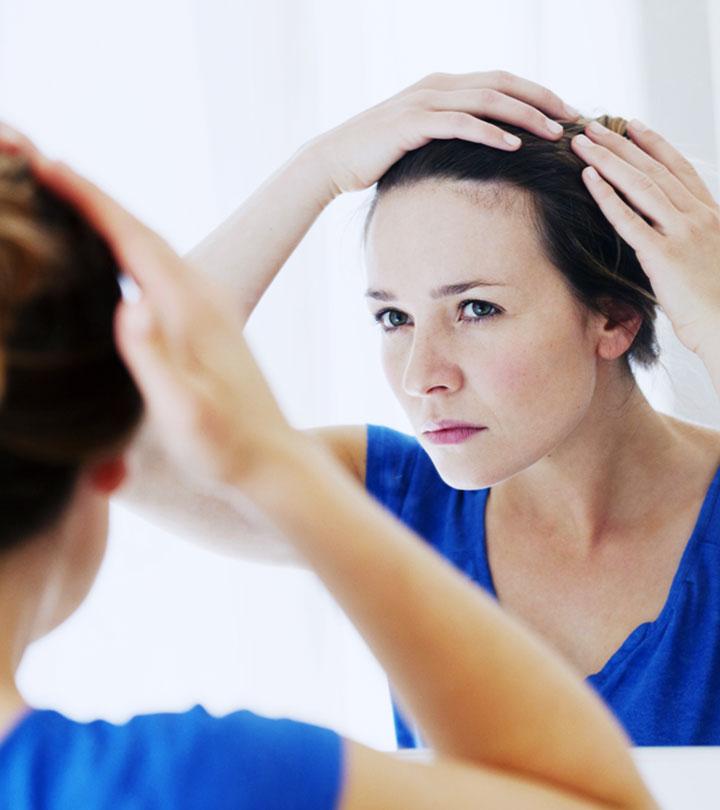
You might be wondering how hair and hormones can possibly be related. But they are, and this link ho
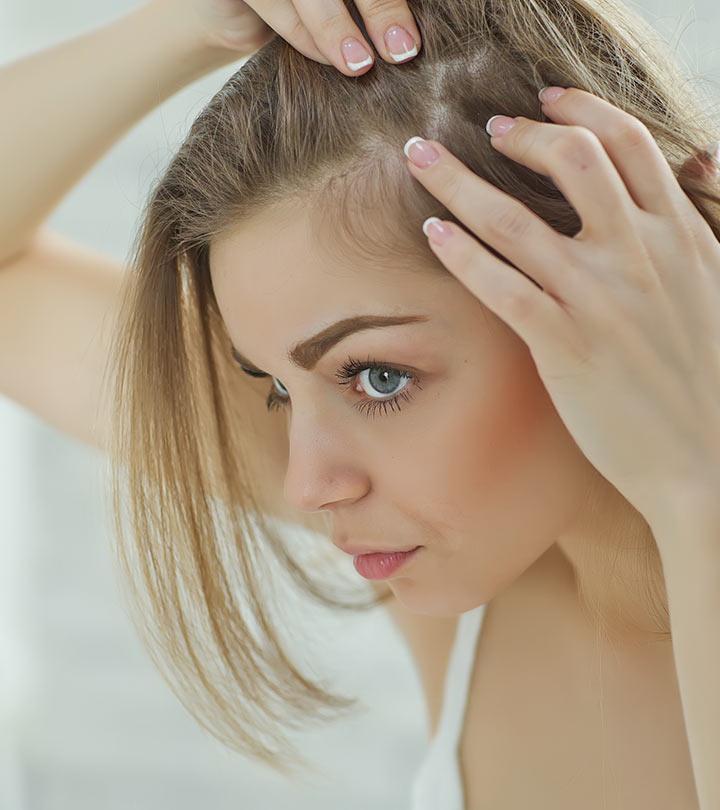
Getting to the root of your temple hair loss is key to choosing the right remedies.

Get the long, flowing mane of your dreams with the help of some amazing plants!

Pro tips to watch what you eat to avoid losing your precious tresses and keep them healthy
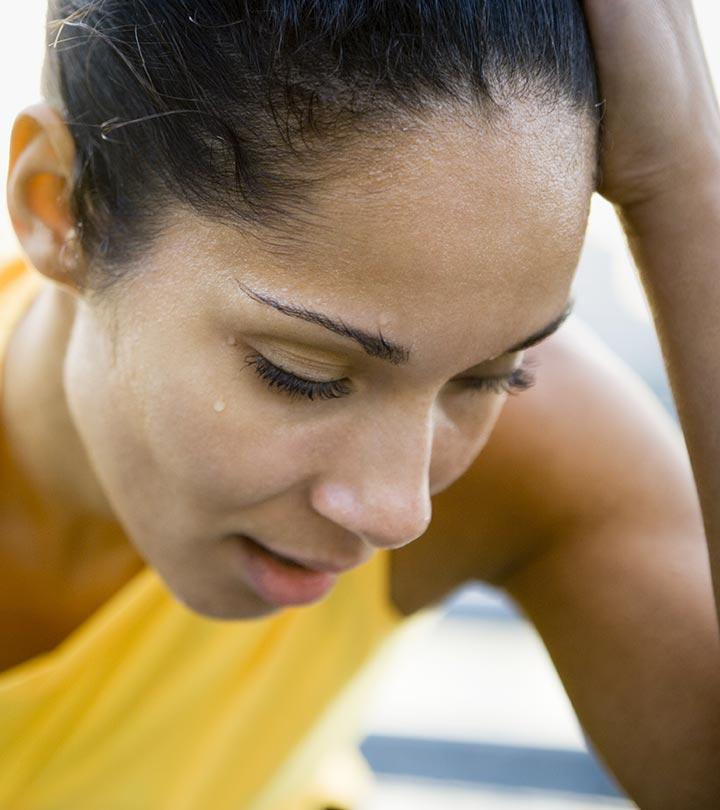
Yes, you do need to keep your scalp dry and clean as much as possible.